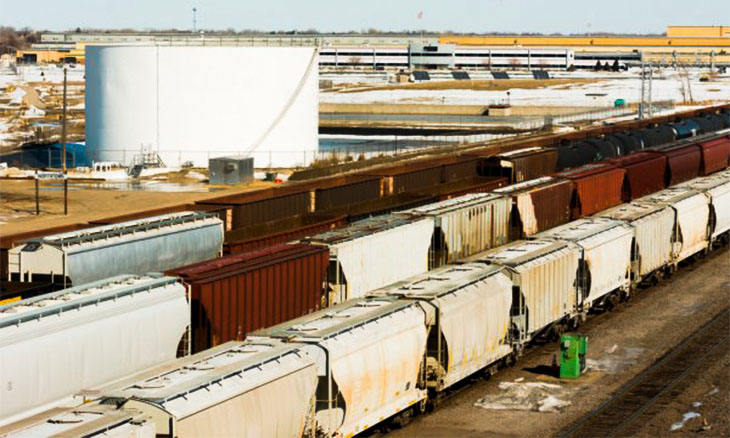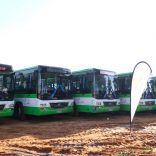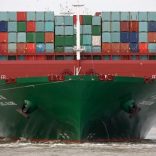Mozambique: Intermodal integration of urban transport between the cities of Maputo and Matola has ...
Mozambique: SIR Motors set to revive the industrial unit once the 5th largest in Africa

Picture: O País
Mozambique is going to produce train wagons again. The company responsible for production is the same company that used to make them, COMETAL, once the fifth largest manufacturer on the continent. Responsible for the rehabilitation is the Sir Motors group, which has bought the firm.
In fact, it is the rebirth of an industry that has already flown Mozambique’s flag across borders. Now, under the management and ownership of the Sir Motors Group, COMETAL begins activities dedicated to the construction of various types of infrastructure made of containers.
By containers, we mean the containers that normally arrive on ships and later become redundant. But, COMETAL, the new COMETAL, wants to change this, through the use of laser iron cutting, a lower-cost technique.
The work doesn’t stop, and now, more than ever, Mozambique needs it. After the attacks in Cabo Delgado, much infrastructure was destroyed, and COMETAL has a solution.
In the company’s yards, one can see police posts built through the professional handling of the containers’ zinc sheets and iron.
The director of projects at COMETAL, Abdul Ussene, explained that the idea is to reduce the effects of terrorism.
“This is a mobile police station, consisting of a counter, an office, a cell and a first floor, which is a dormitory with six or seven bunk beds,” Ussene announces.
But, because the police agents sleep less than they do patrol work, each kit in those containers also has some motorbikes to ensure movement in the communities.
This is not the only project being developed by COMETAL in this first phase of its renaissance. Other types of infrastructure are built from containers. For example, COMETAL produced a mobile health post with compartments necessary to ensuring basic health services.
One of the compartments, for example, is a general practice clinic, where patients can be observed. But, if necessary, the desk can be transformed into a stretcher. Outside, there are further units for gynaecology and paediatrics.
An interesting point is that the containers are collapsible, which facilitates their transport to the most distant parts of the country. What’s more, they can be transformed into work offices.
In fact, COMETAL, in this first phase, says it can transform the containers into any necessary infrastructure, with lighting provided by solar panels.
But this is just the first phase, because there are more plans in the pipeline.
“We will have assembly lines for motorcycles and motor cultivators, assembly lines for 40-ton trucks, in the near future. And later comes the manufacturing line,” said Michael Antunes, managing director of the firm.
All this is part of a properly timed plan, in which the assembly of wagons is expected to be ongoing by the end of 2022. And, when that happens, COMETAL hopes that its client will not be just the state-owned company Caminhos-de- Ferro de Moçambique, as it is planned to be able to service several other clients from markets outside Mozambique.
Metalworking industry needs investments
The revitalization of the metalworking industry was the subject of debate in the STV programme O País Económico, where Marco Correia, representing the Associação Industrial de Moçambique, and Adalberto Barradas, representing COMETAL itself, were part of the panel.
In general terms, the two panellists said that, for the industry to return to previous levels, it was necessary for the country to invest “without skipping steps”, as Marco Correia put it.
Correia was referring to the investment that must be made by all stakeholders in the sector – “investing in machines and in training qualified labour”, a point with which COMETAL agrees, although not entirely.
COMETAL’s Adalberto Barradas says that the country should concentrate on investing in equipment, because “the manpower being provided by Mozambican training institutions is sufficient for our needs”.
As for the market, the two panellists agreed that it is necessary to concentrate more on domestic sales, because the country needs this equipment, “but certification must be in our investment so that, whenever we want, we can to compete on equal terms internationally”.
By Alfonso Chavo













Leave a Reply
Be the First to Comment!
You must be logged in to post a comment.
You must be logged in to post a comment.